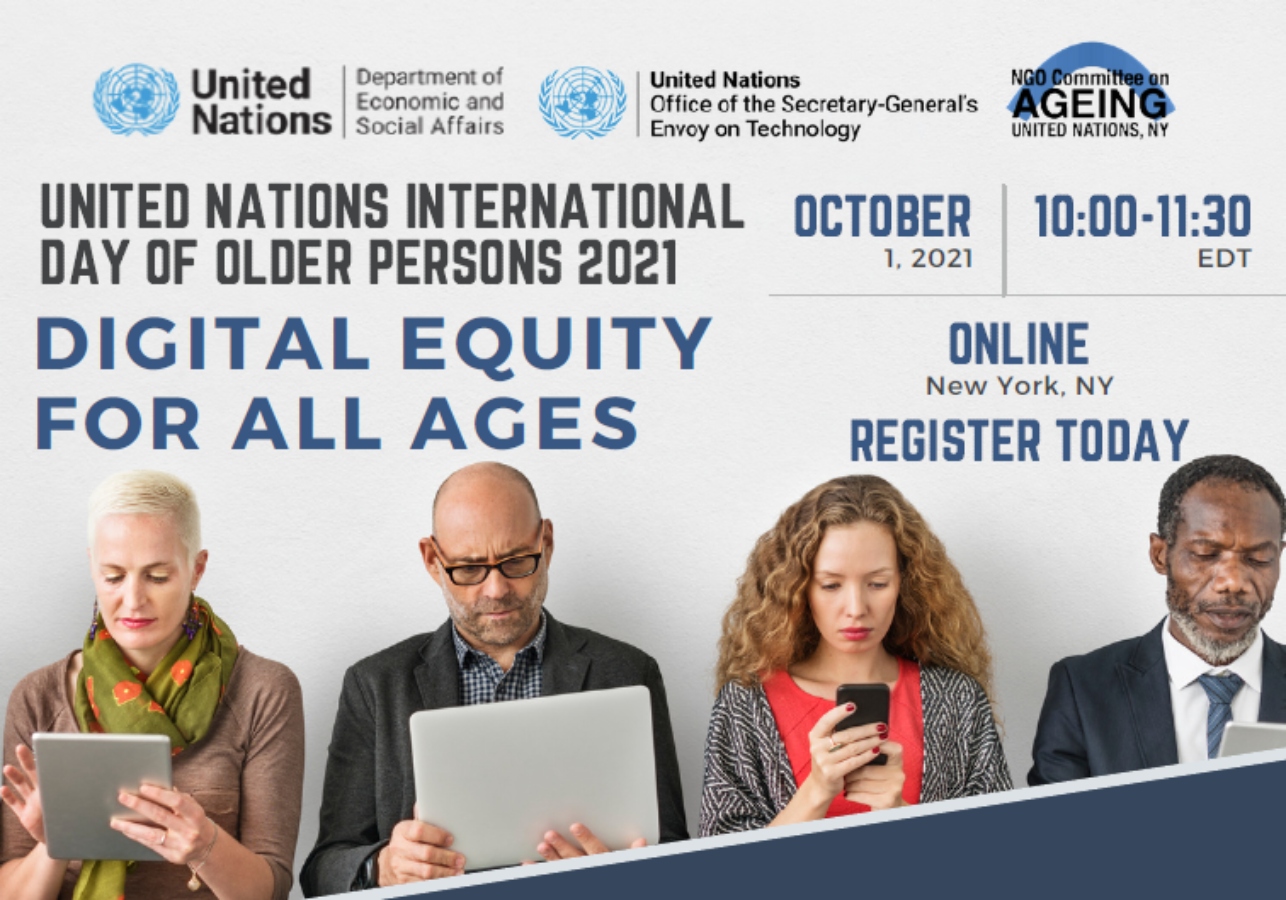
The United Nations International Day of Older Persons 2021 theme “Digital Equity for All Ages[1]” predicates the need for access and meaningful participation in the digital world by older persons. The fourth industrial revolution characterized by rapid digital innovation, characterized by exponential growth has transformed all sectors of society including how we live, work and relate to one another.
Technological advances offer great hope for accelerating progress towards the Sustainable Development Goals (SDGs). Yet, one-half of the global population is off-line, with the starkest differences reflected between most and least developed countries (87% and 19% respectively) (ITU Facts and Figures 2020). Recent reports by the International Telecommunications Union (ITU) indicate that women and older persons experience digital inequity to a greater extent than other groups in society; they either lack access to technologies or are often not benefitting fully from the opportunities provided by technological progress.
Meanwhile, as efforts to connect more people are currently under way, new risks have become apparent. For example, cybercrimes and misinformation threaten the human rights, privacy, and security of older people. The rapid speed of adoption of digital technology has outpaced policy and governance at the national, regional, and global levels. The Secretary-General’s Roadmap[2] seeks to address these challenges by recommending concrete action to harness the best of these technologies and mitigate their risks.
Objectives of #UNIDOP2021:
- Ageism & Human Rights
To bring awareness of the importance of digital inclusion of older persons, while tackling stereotypes, prejudice and discrimination associated with digitalization taking into account sociocultural norms and the right to autonomy.
- Sustainable Development
To highlight policies to leverage digital technologies for full achievement of the sustainable development goals (SDGs).
- Access & Literacy
To address public and private interests, in the areas of availability, connectivity, design, affordability, capacity building, infrastructure, and innovation.
- Cybersecurity & Ethics
To explore the role of policies and legal frameworks to ensure privacy and safety of older persons in the digital world.
- Accountability
To highlight the need for a legally binding instrument on the rights of older persons and an intersectional person-centered human rights approach for a society for all ages.
Event
"Digital Equity for All Ages" Virtual Zoom Webinar and Facebook Live Date: 1 October 2021 Time: 9:00-10:30am ET or 10-11:30am ET Official Flyer PRE-REGISTER HERE.
References: [1] Digital technologies refer to a wide range of new technologies ranging from the internet, mobile phones, and all the other tools to collect, store, analyze, and share information digitally, also including Artificial Intelligence (AI), robotics, automation, 5G, cryptocurrencies, internet of things. https://www.un.org/development/desa/dspd/2021/02/online-global-dialogue-on-digital-inclusion-for-all [2] https://www.un.org/en/content/digital-cooperation-roadmap/
 Welcome to the United Nations
Welcome to the United Nations